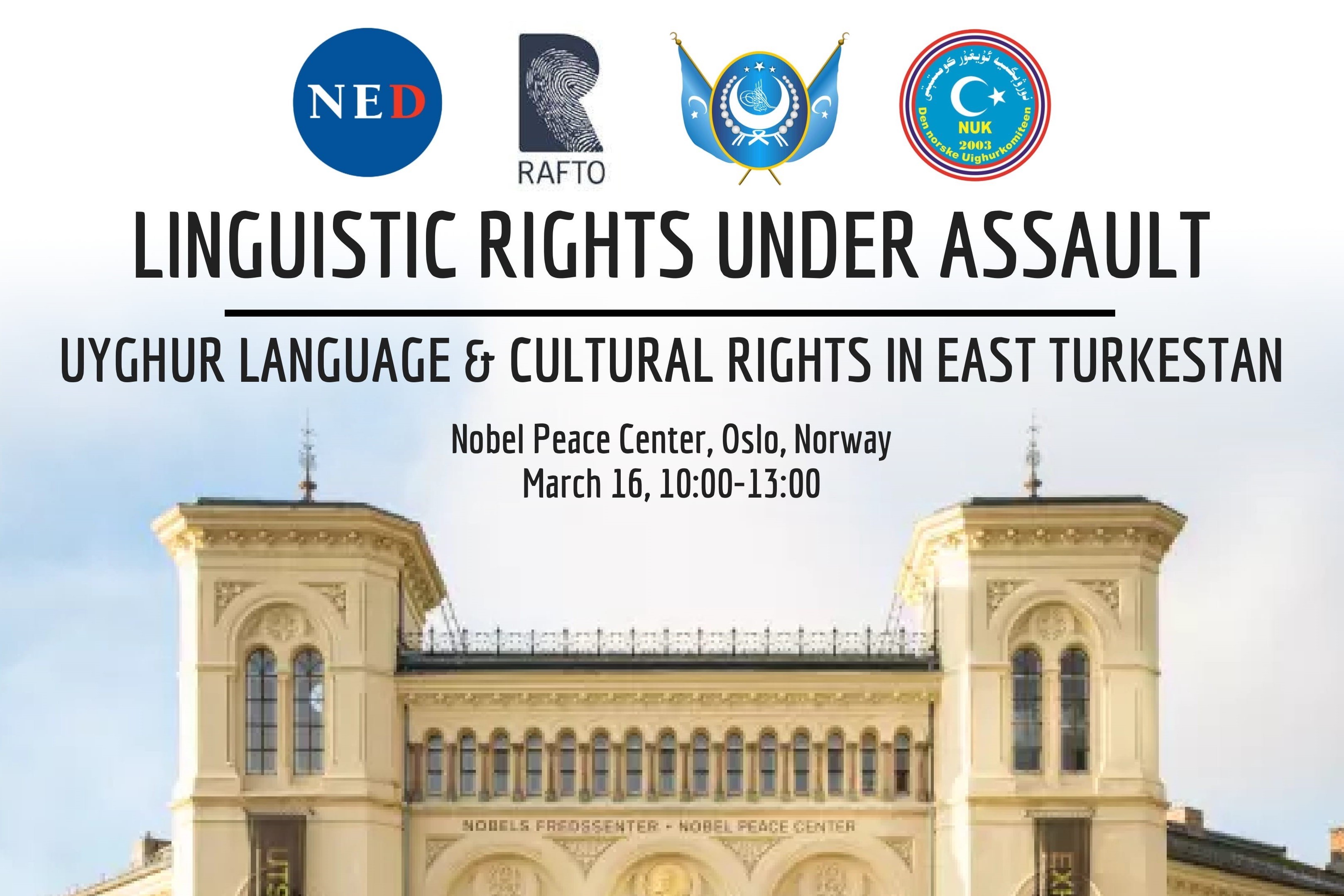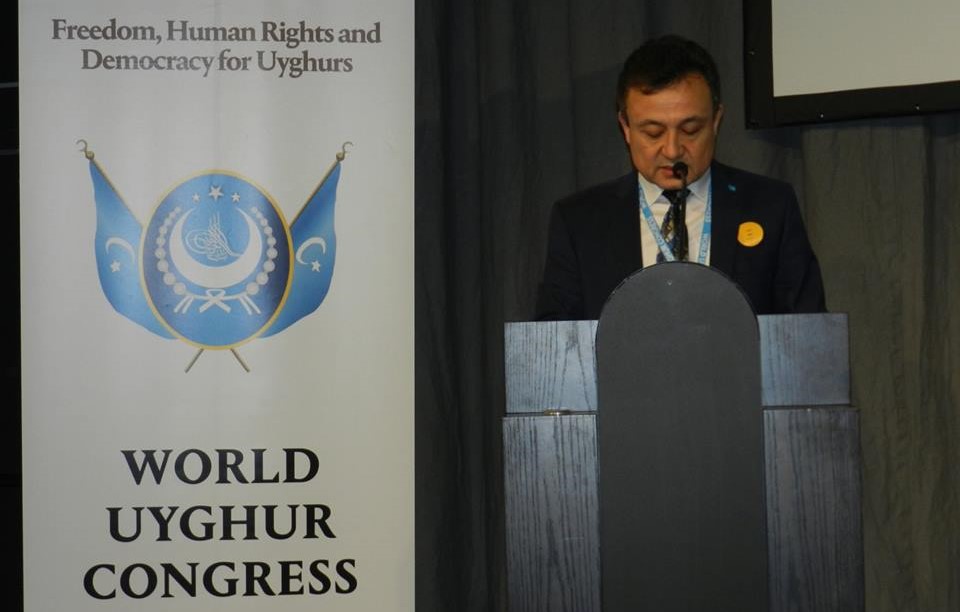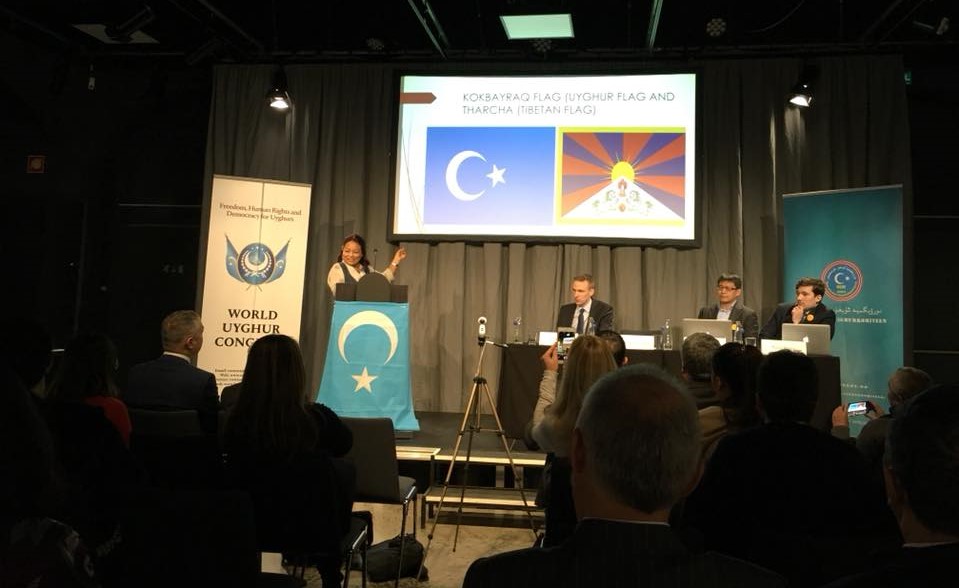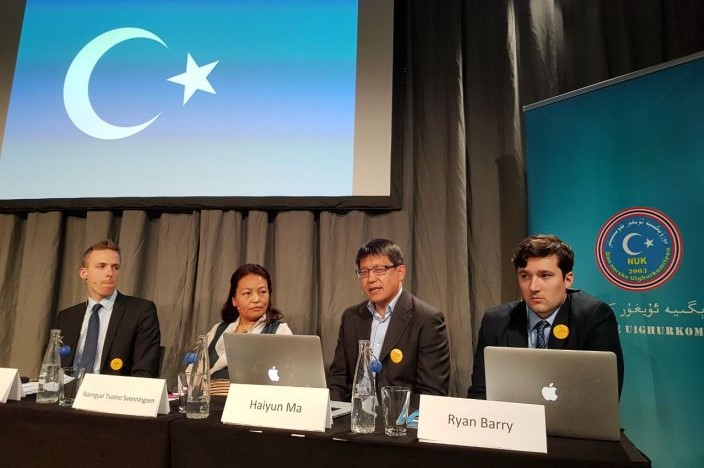World Uyghur Congress Concludes Round-table Discussion at the Nobel Peace Center in Oslo, Norway

World Uyghur Congress, 20 March 2018

The World Uyghur Congress held a round table discussion on March 16, Uyghur Linguistic Rights Under Assault: Uyghur Language & Cultural Rights In East Turkestan, under the co-sponsorship of the Norwegian Uyghur Committee and the Rafto Foundation for Human Rights at the Nobel Peace Center in Oslo, Norway.
The roundtable brought together Uyghur activists and academics as well as representatives from civil society in Norway to discuss and examine the deplorable situation in terms of Uyghur language rights and how China’s policy on language rights.
The event opened with brief remarks from the President of the World Uyghur Congress, Dolkun Isa, who spoke about China’s assault on the Uyghur identity for many years. Considering that the event was taking place at the symbolic Noble Peace Center, Isa mentioned that, “We must recall the struggles and spirit of previous Nobel Prize laureates and loudly demand peace, democracy and human rights for the Uyghur people, until we are heard.”

Chairman of the Norway Uyghur Committee, Bahtiyar Ømer, spoke about the role of his organization in Norway in recent years, as well as the importance of maintaining the Uyghur language in the diaspora. Ømer also stated that the Norway Uyghur Committee has made 2018 a year that will focus on language rights and the proliferation of the Uyghur language in the Uyghur community in Norway.
Finally, Jostein Hole Kobbeltvedt, Executive Director of the Rafto Foundation for Human Rights, spoke about the role of Rafto in previous years supporting human rights defenders around the world. Kobbeltvedt also described how Rafto maintains contact with previous laureates and works to continue to raise their relevant issues.

The first panel included Jostein Hole Kobbeltvedt, Gerald Kador Folkvord (Amnesty International Norway Political Adviser) and Omer Kanat (Uyghur Human Rights Project Director), who discussed the challenges for human rights advocacy in Norway in particular, in the context of the situation for Uyghurs in East Turkestan today.
Kobbeltvedt mentioned that, “Norway still brands itself as a country standing up for human rights, but the efforts to normalize relations with China has created this new kind of pragmatism in Norway […] but we won’t talk about [human rights] when it’s not in our interests.” Following this, Folkvord also spoke about China’s approach to foreign policy, stating that:
Extremism is a very good card to play when one wants to hide human rights violations towards the international community. From 9/11, Chinese authorities almost stopped talking about Uyghur separatism and started talking about Uyghur terrorism, and started to define religious oppression, cultural persecution as participating in the global war on terror. And guess what? The rest of the world agreed and said, Ok now we don’t have to talk about Uyghur rights any longer.
Omer Kanat spoke specifically about language rights for Uyghurs as well as the importance of events like these as he said, “It is this solidarity and sharing of ideas that helps Uyghurs to improve their situation.” Kanat also responded to a question about why China is increasing repressive policies by saying that:
The decline of the weight of democracy and human rights in the foreign policy in Western countries plays the most important role in the intensification of Chinese policies in the region, and the lack of reaction [to these policies] encourages China to continue its repression.
Following the panel was a short speech from Norwegian MP, Nicholas Wilkinson, who spoke about his recent disappointment in Norway’s role in promoting human rights, saying that:
“I was quite ashamed when the Dalai Lama when he came to Norway…and not a single person in the Nor government wanted to meet him because they were more interested in selling fish to the Chinese regime, than to stand up for human rights, and when fish is valued higher than human rights, we have serious issues with how western democracies are fulfilling their duties around the world on following up on human rights.”
The second panel continued with Tsomo Svenningsen (Norwegian Tibet Committee Chairperson), Haiyun Ma (Frostburg State University Assistant Professor) and Ryan Barry (World Uyghur Congress Project Coordinator).

Svenningsen spoke first about the parallels between issues faced by Uyghurs and Tibetans and showed the short documentary featuring Tashi Wangchuk, who was detained for petitioning the government in Beijing for greater freedom in terms of language rights for the Tibetan people. She remarked that “China pays lip service to protecting the Tibetan language and the Chinese government seems intent on subverting and eventually eliminating the use of the Tibetan mother tongue. And that goes the same for Uyghurs.”
Haiyun Ma then spoke about the relationship between central control in Beijing and East Turkestan since the founding of the People’s Republic of China in 1949 on through until today to try to understand Chinese policy. During the discussion, Ma said that, “Chinese aggression can be felt almost everywhere.” He also provided an explanation for Chinese policy towards Uyghurs in particular in recent years.

Finally, Ryan Barry of the World Uyghur Congress spoke about the efforts at European Parliament in Brussels in recent years and some of the barriers faced by NGOs looking to support human rights in China. Barry argued that, “Although the repression of the Uygur people should be reason alone for individuals and states to speak out and take action, China’s attack on human rights poses a danger to everyone and threatens to undermine the very concept of human rights.”
A great deal of lively discussion between panelists identified some of the major problems that still exist in a new era for civil society and states, and speakers enunciated their approaches to countering the toxic effects of China’s continued aggression towards states, civil society and individuals.

